Hello!
Welcome to the latest edition of Books on GIF, the animated alternative to boring book reviews. This Sunday's book is 'Little Reunions' by Eileen Chang.
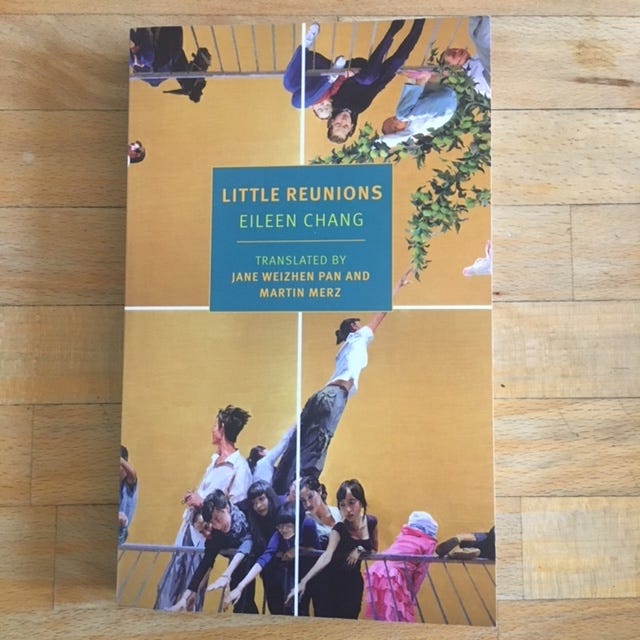 I haven't reviewed anything from the New York Review of Books' imprint since September, when I tackled 'The Violins of Saint-Jacques' by Patrick Leigh Fermor. You may remember it's about an island that blows up and kills everyone. The NYRB has done an amazing job bringing unearthed gems back into print, and I highly recommend their book-of-the-month subscription service. It's how I obtained Chang's book, which appears for the first time in English. They've sent me a torrent of excellent novels over the years, including 'In a Lonely Place' by Dorothy B. Hughes, 'The Dud Avocado' by Elaine Dundy (which I can't praise enough — thanks again, Danielle, for recommending it to me), 'The Door' by Magda Szabo and 'Our Spoons Came From Woolworths' by Barbara Comyns. I'm still debating whether to put 'Little Reunions' in the same category as those books. I liked it, but it left me like:
I haven't reviewed anything from the New York Review of Books' imprint since September, when I tackled 'The Violins of Saint-Jacques' by Patrick Leigh Fermor. You may remember it's about an island that blows up and kills everyone. The NYRB has done an amazing job bringing unearthed gems back into print, and I highly recommend their book-of-the-month subscription service. It's how I obtained Chang's book, which appears for the first time in English. They've sent me a torrent of excellent novels over the years, including 'In a Lonely Place' by Dorothy B. Hughes, 'The Dud Avocado' by Elaine Dundy (which I can't praise enough — thanks again, Danielle, for recommending it to me), 'The Door' by Magda Szabo and 'Our Spoons Came From Woolworths' by Barbara Comyns. I'm still debating whether to put 'Little Reunions' in the same category as those books. I liked it, but it left me like:
 But the more I think about 'Little Reunions' as I write this, the more I like it. I'm going to say up front that this book is hard to follow. Its protagonist is Julie, who starts the book ready to take her final exams at a Catholic high school in Hong Kong on the eve of the Japanese invasion of World War II. As her story progresses, it jumps forward and backward in time, often from one paragraph to the next. There's also a cast of thousands of supporting characters who enter and exit these flashbacks and flash-forwards just as suddenly, and some of them have multiple and similar names. For example, Julie's mother is called Rachel and Second Aunt. There are no fewer than three women with the title of 'Auntie.' There's a Jade Peach and a Jade Flower. The book was making my head hurt before I realized I was reading it the wrong way. I was trying to pull all these threads and tangents into a straight line, while keeping track of who's who like:
But the more I think about 'Little Reunions' as I write this, the more I like it. I'm going to say up front that this book is hard to follow. Its protagonist is Julie, who starts the book ready to take her final exams at a Catholic high school in Hong Kong on the eve of the Japanese invasion of World War II. As her story progresses, it jumps forward and backward in time, often from one paragraph to the next. There's also a cast of thousands of supporting characters who enter and exit these flashbacks and flash-forwards just as suddenly, and some of them have multiple and similar names. For example, Julie's mother is called Rachel and Second Aunt. There are no fewer than three women with the title of 'Auntie.' There's a Jade Peach and a Jade Flower. The book was making my head hurt before I realized I was reading it the wrong way. I was trying to pull all these threads and tangents into a straight line, while keeping track of who's who like:
 Then it dawned on me that the best way to read this book is to approach it like Twitter. That's not to say that Chang's novel is like:
Then it dawned on me that the best way to read this book is to approach it like Twitter. That's not to say that Chang's novel is like:
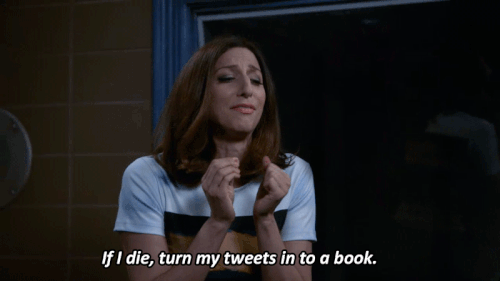 It's just best to let this book wash over you, like a tweetstorm. Once I did that, I was able to feel the emotional intensity of the story and, through that, to understand it. I think. Though there's a physical war going on far in the background, the real battle in 'Little Reunions' is between Rachel and Julie. After divorcing Julie's opium-addict father, Rachel bounces from lover to lover from Hong Kong to Europe and back. Whenever they are reunited, Rachel relentlessly criticizes Julie and reminds her about all the sacrifices, romantic and fiscal, that she's made to care for Julie. Julie vows to repay this debt, and tallies a sum, similar to what happens in last year's film 'Lady Bird.' Once Julie relocates to Shanghai, she begins an affair with a man named Chih-yung, a collaborator with the Japanese who is considered a war criminal. He's also married to at least two other women. Chih-yung, who leaves town often to avoid arrest, expresses his love to her by writing long letters and telling her she's a kind of soulmate with whom he can discuss anything, including all the other women he's been with; even one he raped. By the end of the book, Julie is so worn down by the absence of love from men and her mother, she's like:
It's just best to let this book wash over you, like a tweetstorm. Once I did that, I was able to feel the emotional intensity of the story and, through that, to understand it. I think. Though there's a physical war going on far in the background, the real battle in 'Little Reunions' is between Rachel and Julie. After divorcing Julie's opium-addict father, Rachel bounces from lover to lover from Hong Kong to Europe and back. Whenever they are reunited, Rachel relentlessly criticizes Julie and reminds her about all the sacrifices, romantic and fiscal, that she's made to care for Julie. Julie vows to repay this debt, and tallies a sum, similar to what happens in last year's film 'Lady Bird.' Once Julie relocates to Shanghai, she begins an affair with a man named Chih-yung, a collaborator with the Japanese who is considered a war criminal. He's also married to at least two other women. Chih-yung, who leaves town often to avoid arrest, expresses his love to her by writing long letters and telling her she's a kind of soulmate with whom he can discuss anything, including all the other women he's been with; even one he raped. By the end of the book, Julie is so worn down by the absence of love from men and her mother, she's like:
 There are many vivid scenes in 'Little Reunions,' but two stood out. When the Japanese are bombing Hong Kong, one of Julie's school friends Bebe is upset that the coffee's gone cold, and she asks a nun to make a fresh pot. I almost laughed out loud. During a flash-forward, when Julie has an abortion in New York, I felt her shock and horror viscerally. The writing is often beautiful, and has some wonderful descriptions, including one of someone's singing that sounds like 'a murder victim's spirit trapped in an urn.' And when I reached the last page, the final paragraphs called back to the novel's first in such an amazing way that I almost clapped. I don't want to ruin it here, but it's:
There are many vivid scenes in 'Little Reunions,' but two stood out. When the Japanese are bombing Hong Kong, one of Julie's school friends Bebe is upset that the coffee's gone cold, and she asks a nun to make a fresh pot. I almost laughed out loud. During a flash-forward, when Julie has an abortion in New York, I felt her shock and horror viscerally. The writing is often beautiful, and has some wonderful descriptions, including one of someone's singing that sounds like 'a murder victim's spirit trapped in an urn.' And when I reached the last page, the final paragraphs called back to the novel's first in such an amazing way that I almost clapped. I don't want to ruin it here, but it's:
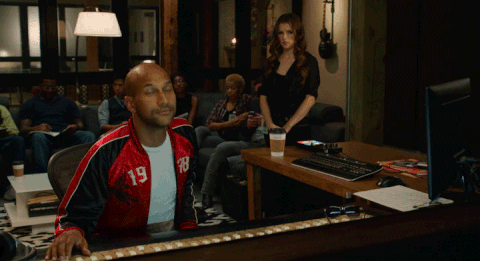 This is a book about our desire to love and to be loved. It's also about how absence doesn't always make the heart grow fonder. In fact, when mixed with resentment, absence can corrupt love into its opposite, which is, as The Lumineers sing, indifference. 'Little Reunions' also offers a fascinating window into Chinese culture and history as it transformed from dynastic rule to Communism. It's a tough read, but if you stick with it, you'll find it's ultimately a rewarding and important book.
This is a book about our desire to love and to be loved. It's also about how absence doesn't always make the heart grow fonder. In fact, when mixed with resentment, absence can corrupt love into its opposite, which is, as The Lumineers sing, indifference. 'Little Reunions' also offers a fascinating window into Chinese culture and history as it transformed from dynastic rule to Communism. It's a tough read, but if you stick with it, you'll find it's ultimately a rewarding and important book.
My rating:
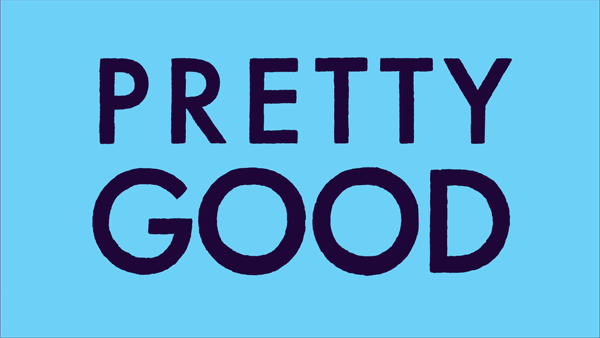 'Little Reunions' by Eileen Chang was published in 2009 by Crown Publishing. A translation by Jane Weizhen Pan and Martin Merz was published in 2018 by The New York Review of Books. 323 pages.
'Little Reunions' by Eileen Chang was published in 2009 by Crown Publishing. A translation by Jane Weizhen Pan and Martin Merz was published in 2018 by The New York Review of Books. 323 pages.
** If you enjoyed this newsletter, please share Books on GIF with a friend. **
Next Sunday, and the Sundays after that: I'm currently reading 'The Good Earth' by Pearl S. Buck, which I hope to have finished by next week. Also in the queue are 'The Story of the Lost Child' by Elena Ferrante, 'The Vorrh' by B. Catling and 'Evicted' by Matthew Desmond. Got a bestseller, a classic or a forgotten gem you want me to review? Shoot me an email.
If you missed last week's edition, here's my review of 'Ahsoka' by E. K. Johnston.
Want to discuss this or any other book? Hit me up on Twitter, Facebook, Instagram and Goodreads.
Thanks for reading, and thanks especially to Donna for editing this review!
Until next time,
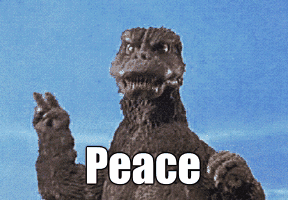 MPV
MPV











